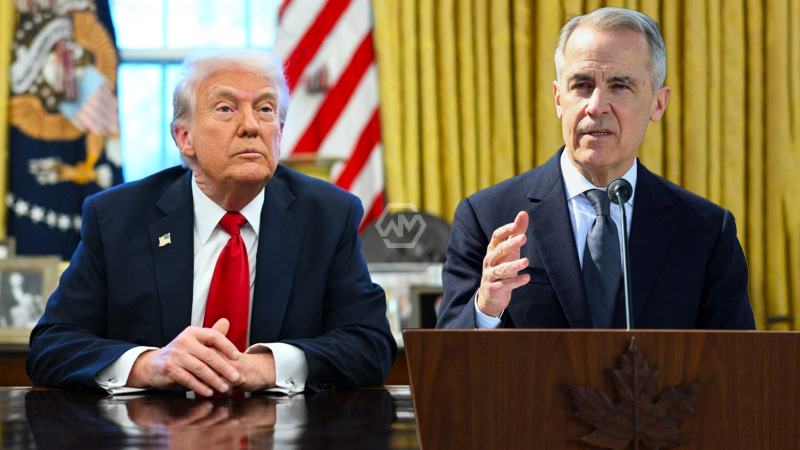- U.S. President Donald Trump and Canadian Liberal Leader Mark Carney discussed trade issues in their first call.
- Trump announced a 25% tariff on automobile imports, sparking tensions.
- Carney vowed to protect Canadian workers and uphold national sovereignty.
In a pivotal phone call, U.S. President Donald Trump and Liberal Leader Mark Carney engaged in their first conversation, with trade relations dominating the discussion.
Carney, leading the Liberal campaign, emphasized Canada’s sovereignty and determination to protect its workforce. His response underscores a shifting dynamic in U.S.-Canada relations, especially as retaliatory tariffs loom.
U.S.-Canada Trade Rift Deepens as Trump Imposes Auto Tariffs
The trade dispute between the U.S. and Canada escalated as Trump’s administration introduced a 25% tariff on imported automobiles, a move that could significantly impact Canadian manufacturers. Trump, in a post on Truth Social, acknowledged his call with Carney, referring to him as “Prime Minister” and stating that discussions would continue after Canada’s election. This marks a shift from Trump’s past rhetoric, where he repeatedly downplayed Canada’s sovereignty.
Carney, in response, reinforced Canada’s independent stance, asserting that the country would not be treated as a subordinate to the U.S. He indicated that retaliatory tariffs were under consideration, aiming to safeguard Canadian jobs. As part of his campaign, he met with provincial leaders to strategize on countering U.S. trade measures. Ontario Premier Doug Ford echoed Carney’s sentiments, stating that Canada would “fight like we never fought before” to maintain economic stability.
The political landscape in Canada is further complicated by Trump’s actions, as the tariff decision places economic policies at the forefront of the election campaign. Conservative Leader Pierre Poilievre and NDP Leader Jagmeet Singh are also addressing trade policies in their campaigns, each proposing different strategies to mitigate economic fallout. The election results will play a crucial role in shaping Canada’s approach to the ongoing dispute.
Meanwhile, former Quebec Premier Jean Charest expressed concerns over Trump’s attitude toward Canada, calling his remarks about Canada as the “51st state” deeply troubling. He suggested that a new Canadian government under Carney could potentially reset relations and reestablish diplomatic stability. As tensions rise, the focus remains on how Canada will respond to this economic challenge.
With the U.S.-Canada trade battle intensifying, the upcoming Canadian election will determine the nation’s strategy moving forward. Carney’s stance on sovereignty and economic protectionism will be tested as diplomatic negotiations unfold.
“We are masters in our own home.” – Mark Carney



